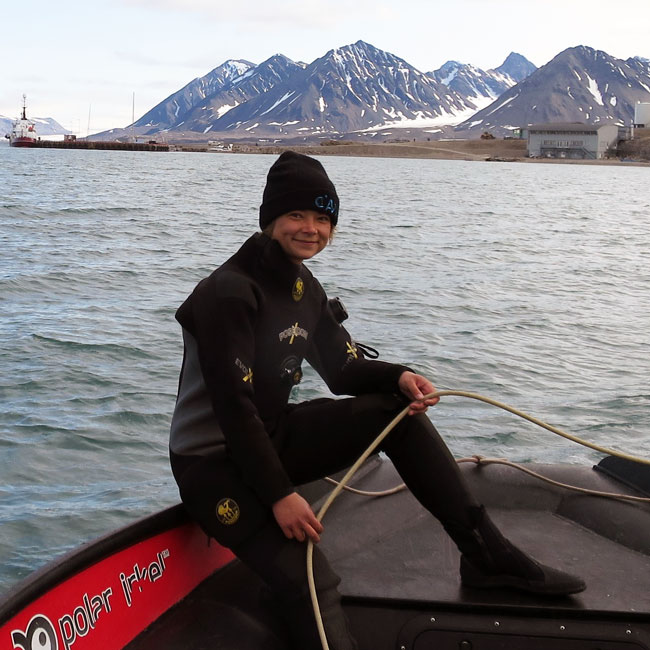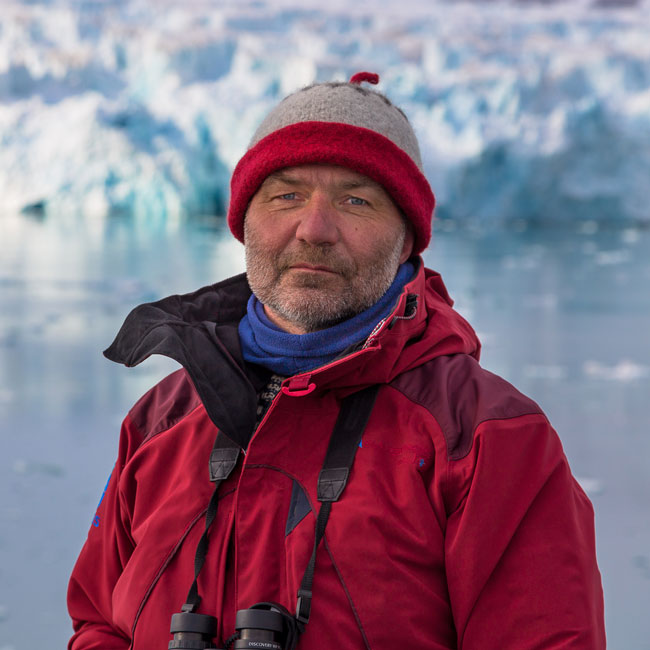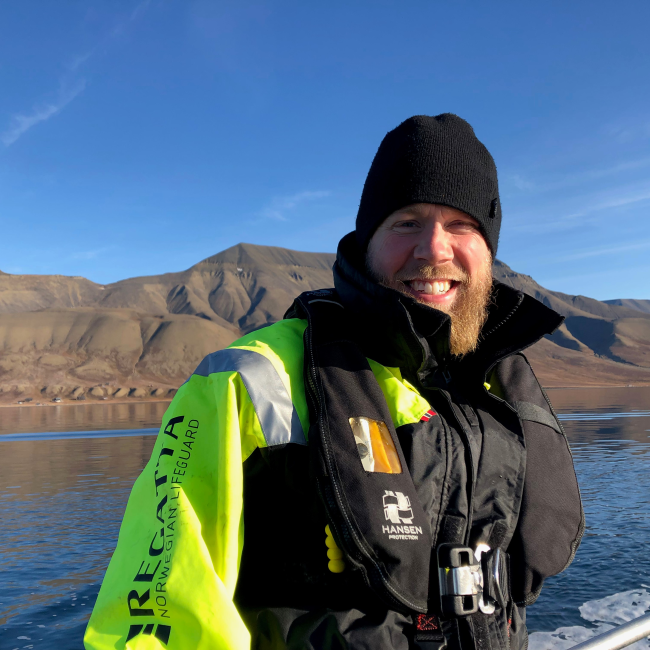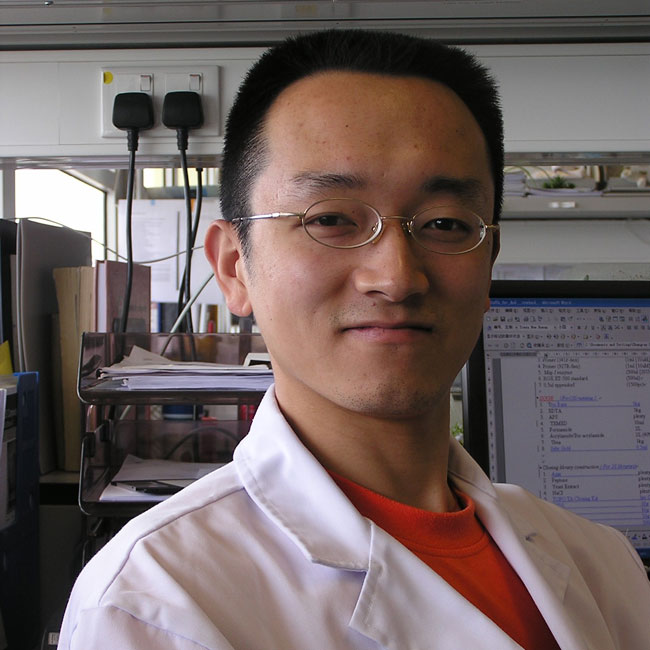Influence of terrestrial run-off on kelp elemental composition and associated microbial community
End of August 2022, Sarina Niedzwiedz from the University of Bremen conducted a field campaign to analyse the effect of terrestrial run-off on Arctic kelp ecosystems. Kelps act as ecosystem engineers and foundation species, thereby providing the livelihood for many associated species. With ongoing climate change, glaciers and permafrost are melting and increasing precipitation rates are recorded. This increases the sedimental run-off, which alters water parameters (e.g., salinity, turbidity, elemental composition). To analyse how that affects kelps, three areas in Billefjorden were investigated that are dominated by: A) terrestrial run-off (e.g., precipitation), B) glacial run-off and C) relatively clear coastal water. In all areas, we measured the abiotic parameters and sampled kelps. The field work was carried out in cooperation with Børge Damsgård and Sebastian Andersen of The University Centre of Svalbard (UNIS).
The focus of this study will be to investigate whether the run-off is changing the elemental composition of kelps. This will be evaluated in collaboration with Daniel Pröfrock, Helmuth Thomas, Claudia Schmidt and Lars Hildebrandt of the Helmholtz-Zentrum Hereon, Germany, thereby also connecting the EU-project FACE-IT with the EU-project ECOTIP. Further, we will investigate whether the kelp associated microbial communities are influenced by the altered water parameters. These analyses will be conducted in cooperation with Rui Zhang and Yunlan Yang of the Xiamen University, China. The expertise of all project partners is combined to target the effect of common drivers of Arctic ecosystems transitions and development of kelp ecosystems under the influence of global change and terrestrial and glacial run-off. These results will allow conclusions to be drawn about the effect of run-off on the quality of kelp as a food source.
The project is part of the PhD thesis of Sarina Niedzwiedz of the University of Bremen and was funded by European Union’s Horizon 2020 research and innovation programme under grant agreement No 869154 (FACE-IT) and No 869383 (ECOTIP). The field work was funded by the Arctic Field Grant of the Svalbard Science Forum.
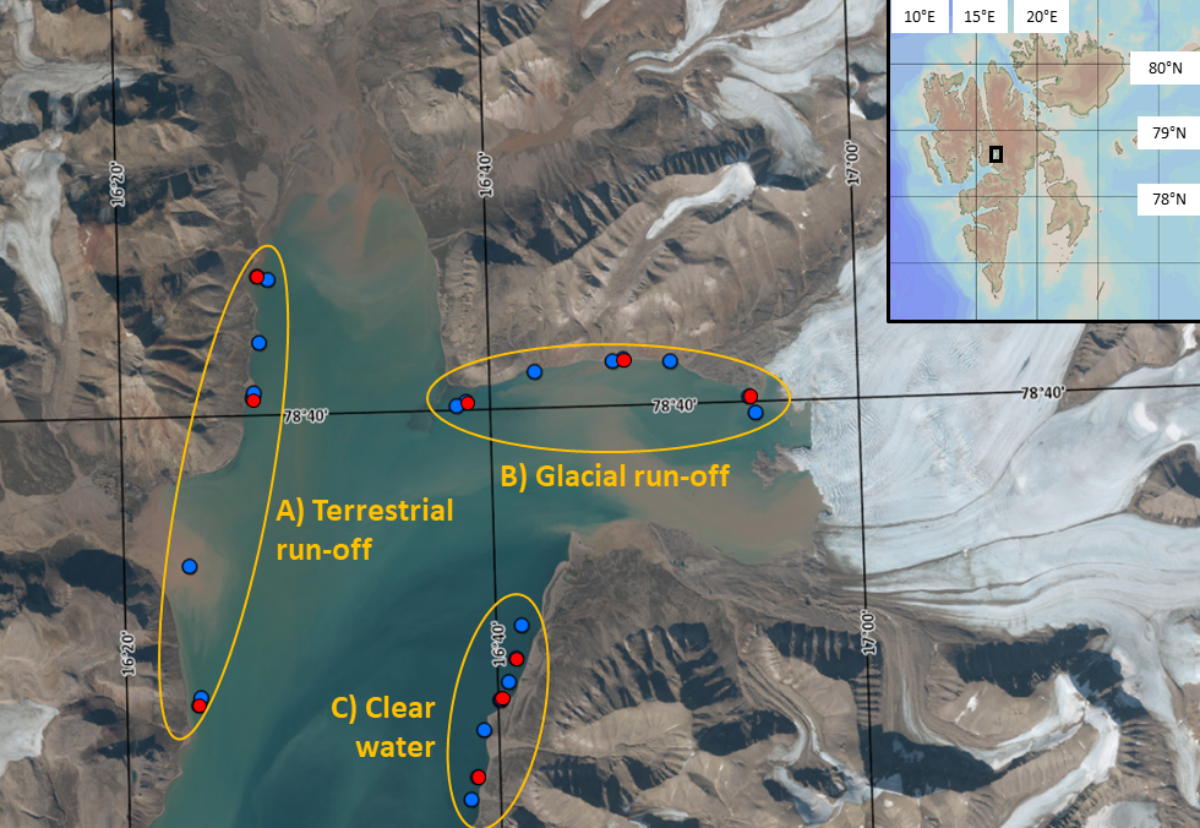
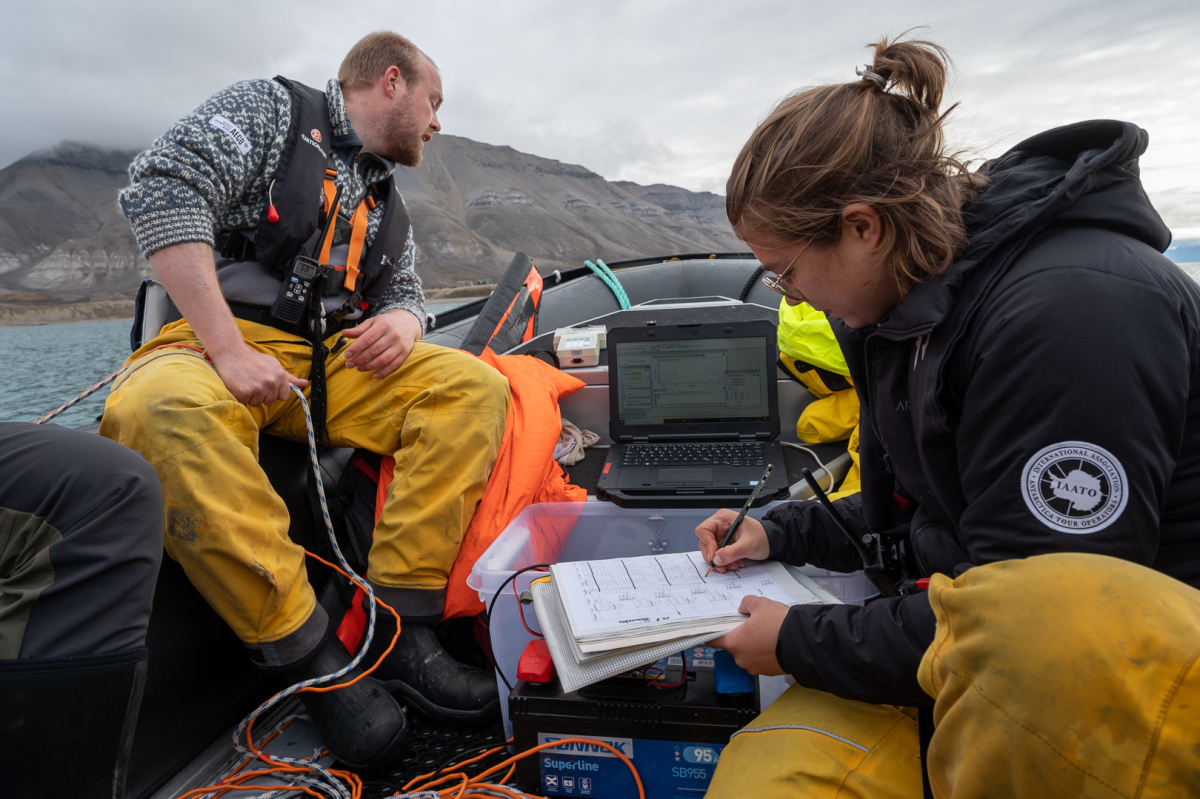
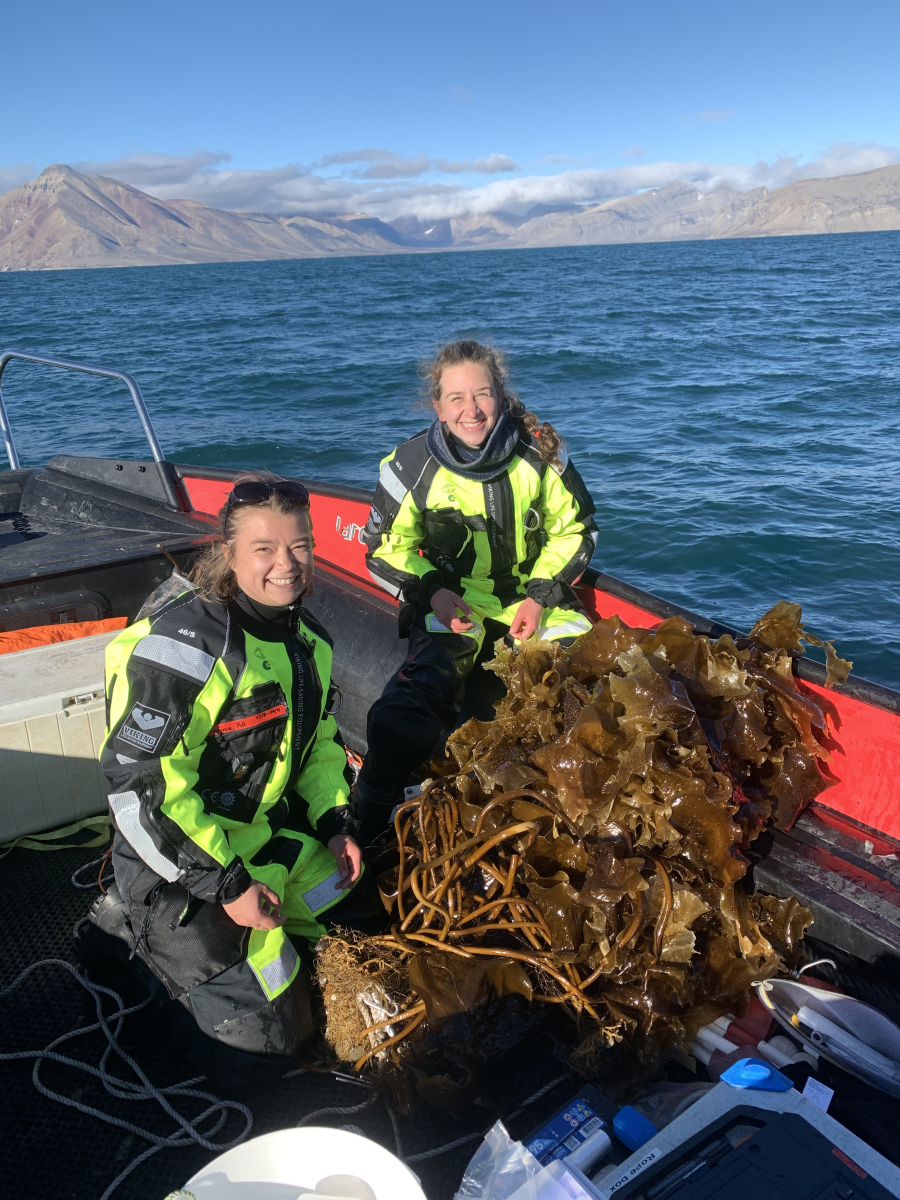
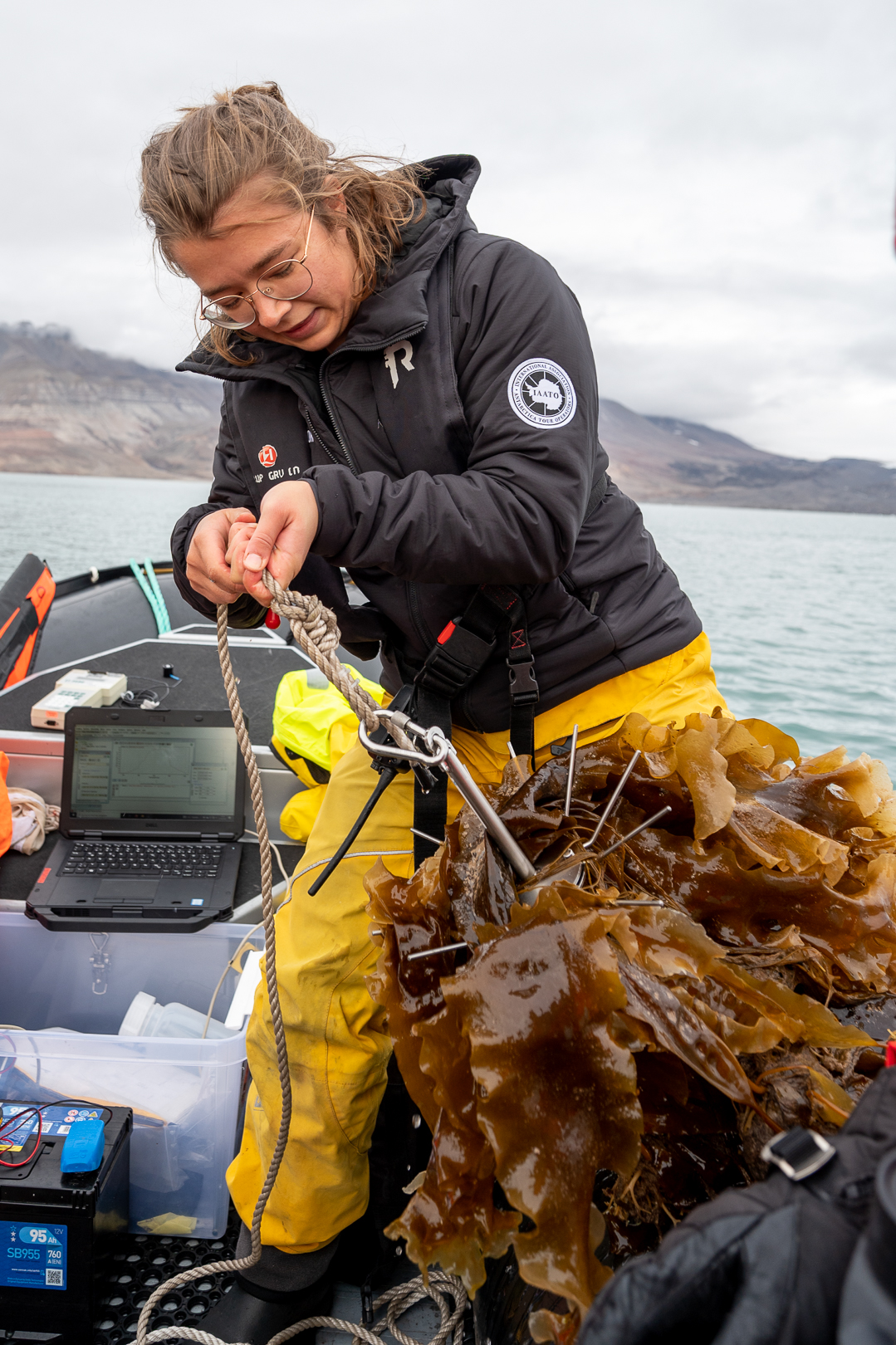
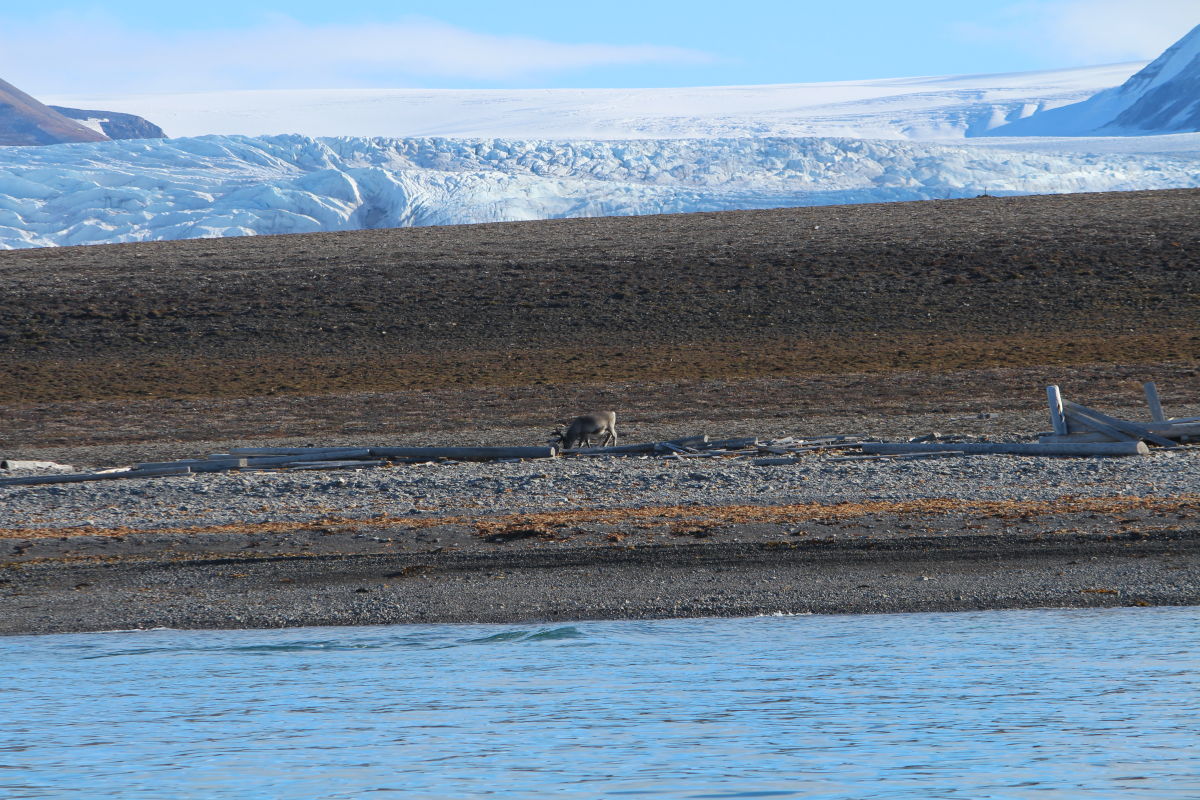
FACE-IT Scientists:
Sarina NIEDZWIEDZ
Marine Botany, University of Bremen, Germany
Sarina’s FACE-IT Projects
Role in FACE-IT:
• PhD student "Ecosystem Function Changes"
Rui ZHAN
Xiamen University, Xiamen, China PR
UXiamen personal page
Role in FACE-IT:
• Researcher "Biodiversity Changes"

